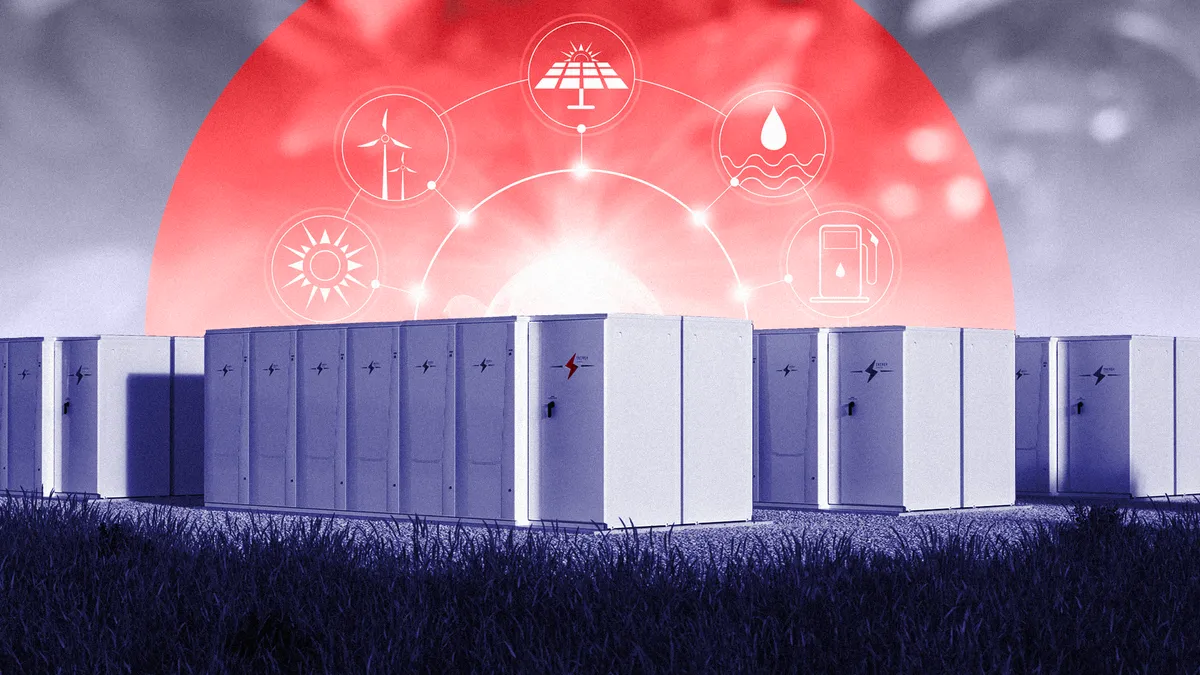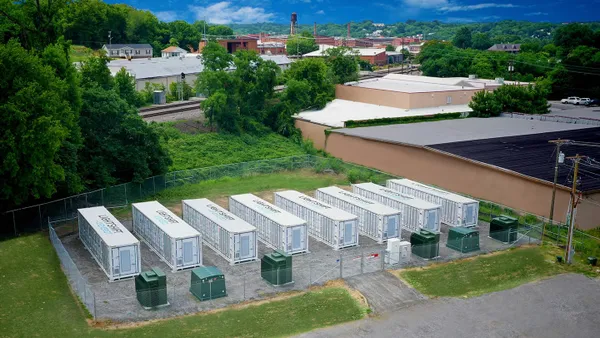Dive Brief:
- A 300 MW/1,200 MWh storage system at Vistra Corp’s Moss Landing Energy Storage Facility in Monterey Bay, Calif., remains offline after an overheating issue on Sept. 4.
- According to a Vistra statement, “a limited number of battery modules” at the storage facility overheated on Saturday night, resulting in the facility going offline. The company said that the overheating was contained and controlled without outside assistance, although the North County Fire Protection District of Monterey County was called to respond.
- The 300 MW unit will remain offline for an undetermined length pending an investigation by Vistra, engineering contractor Fluence and battery manufacturer LG Energy Solution. The California Public Utilities Commission said in a statement that it is also investigating the incident.
Dive Insight:
Moss Landing, which operates under a long-term agreement with Pacific Gas & Electric, is the largest battery storage facility in the world. The first 300 MW unit opened in December 2020, followed by a 100 MW unit that went online in August. Vistra CEO Curt Morgan said there is room on the site — a repurposed power plant — to build up to 1,500 MW of storage.
The second phase unit, which is in a different building, was unaffected by the outage and remains operational.
The outage hit as temperatures in Northern California exceeded 100 degrees for several days in a row, but the California Independent System Operator has not reported any grid problems in the area. Alex Morris, executive director of the California Energy Storage Alliance (CESA), said energy storage systems "have performed well for California this summer, and we will continue to develop best practices for storage to perform reliably and safely."
"CESA continues to work to make sure that the energy storage solutions perform well and operate safely. All types of power plants can occasionally break, and I’m glad to see no safety events occurred here," Morris said. He added that the fact that there were no injuries or reported fire was a positive sign that the facility's safety measures worked.
Vistra is not a member of Morris’ organization.
As battery storage expands on the grid to supplement and support renewable energy generation, safety remains a key issue. Lithium-ion batteries carry the threat of thermal runaway, where a single overheating cell leads to a cascading temperature increase that results in a fire or explosion. Four emergency responders were injured in a 2019 explosion at Arizona Public Service’s McMicken battery plant, a high-profile incident that continues to shape the safety conversation around batteries. In August, about 150 firefighters responded to a fire at Australia’s Victorian Big Battery storage project, which was built with Tesla Megapack units. Investigators have yet to release a report on that fire.
The Moss Landing incident appears to have been less extreme than those incidents. There were no injuries and Vistra said its “risk mitigation and safety systems worked as designed.” Sprinkler systems targeted the affected modules and stopped thermal runaway. Fire crews responding to the incident told local news station KION that battery racks had been “scorched” and some wires were “melted.” Vistra has not announced details on a root cause of the incident.













